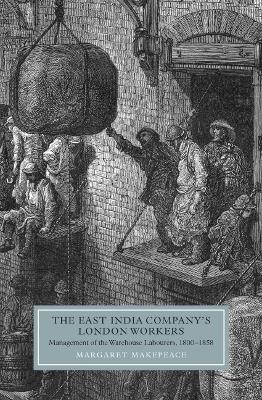The East India Company, which was by 1800 a commercial organisation of unrivalled size and complexity managing a vast empire in Asia, also played a crucial role in the British economy, particularly in London, where the Company wasthe largest employer of civilian labour in the early nineteenth century, with thousands of workmen in its metropolitan warehouses. This book provides a detailed examination of the management strategies used by the Company to control its London warehouse labourers and to maintain acceptable levels of commercial and corporate efficiency. It shows how benevolence formed an integral part of the Company's domestic business practices, with discipline, punishment, regulation and restriction counterbalanced by incentives, rewards and paternalistic practices, such as fair and regular wages, pensions, a comprehensive welfare scheme, free medical treatment and an in-house savings bank. The book also outlines how, when the Charter Act of 1833 brought about the closure of the vast majority of the Company's London warehouses, the directors instigated a pioneering redundancy compensation scheme for the labourers.
MARGARET MAKEPEACE is a Senior Archivist in the India Office Records at the British Library.
- ISBN10 1843835851
- ISBN13 9781843835851
- Publish Date 21 October 2010 (first published 1 January 2010)
- Publish Status Active
- Publish Country GB
- Publisher Boydell & Brewer Ltd
- Imprint The Boydell Press
- Format Hardcover
- Pages 254
- Language English
